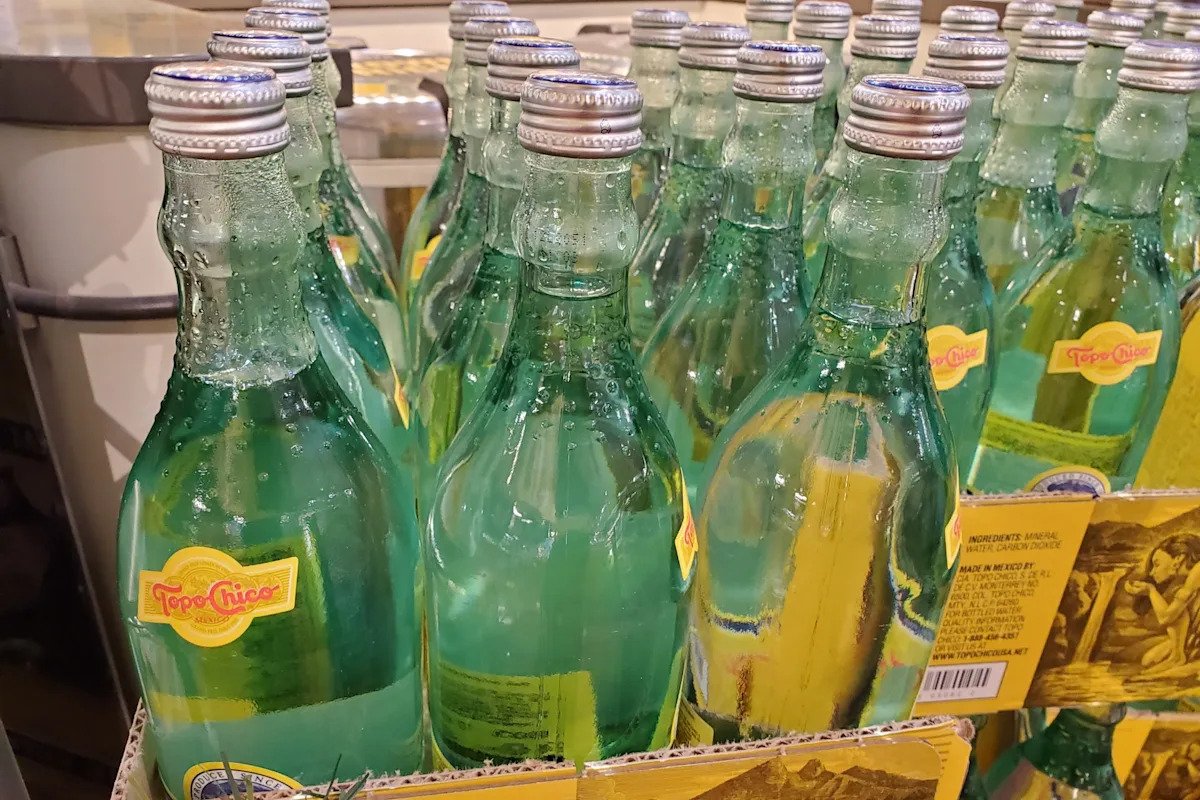‘All impacted product has been removed from store shelves’
A recall of Coca-Cola-owned Topo Chico mineral water for possible contamination received a Class II risk assignment from the U.S. Food and Drug Administration in June.
What happened?
As Newsweek reported, Coca-Cola issued the limited recall on May 28, and the FDA assigned the risk classification on June 17.
The FDA has three recall classes. A Class II recall is a situation in which exposure to the product can “cause temporary or medically reversible adverse health consequences or where the probability of serious adverse health consequences is remote.”
The Topo Chico recall occurred because of a potential contamination with Pseudomonas bacteria. This class of bacteria is commonly found in the environment, though a certain type can lead to “infections in the blood, lungs, urinary tract, or other parts of the body after surgery,” according to guidance from the Centers for Disease Control and Prevention cited by Newsweek.
The recall concerned 241 cases of Topo Chico Mineral Water distributed across five states: Arizona, Louisiana, Nevada, New Mexico, and Texas. Around 40 stores sold the water, including some Costco and Sam’s Club locations, Fox Business reported.
A spokesperson for Coca-Cola told Newsweek in mid-June that “all impacted product has been removed from store shelves.” As of June 25, there were “no illnesses or adverse reactions,” reported Food Safety News, though the recall remained active.
Watch now: Is this common bathroom item making you sick?
Consumers who bought the affected 16.9-fluid-ounce bottles were asked to return or discard the product without drinking it.
Why are Coca-Cola’s food recall and broader health record important?
Food recalls are a crucial tool for regulators, companies, and consumers to help protect public health. In the Topo Chico case, Coca-Cola initiated a voluntary product removal in the public’s best interest after a distributor informed the corporation about a concern.
Viewed broadly, Coca-Cola has a more questionable record regarding its impact on human health and the planet. The company has consistently made the list of World’s Worst Plastic Polluters based on audits by the Break Free From Plastic organization. In 2024, Coca-Cola was the largest known producer of branded plastic waste in the world, according to a study reported on by Axios.
The production and use of plastic are problematic for various reasons, ranging from microplastic health risks — particularly in plastic-bottled beverages — to the generation of heat-trapping gases that warm the planet.
How often do you worry about the quality of your drinking water?
Click your choice to see results and speak your mind.
And, of course, there are complex issues about the nutritional effects of the company’s many products.
What’s being done about Coca-Cola’s effects on health and the planet?
Topo Chico products are packaged in glass and occasionally aluminum, which Coca-Cola correctly touts as more recyclable than plastic.
The company also promotes the health benefits of Topo Chico and other products, as well as its overall sustainability goals. Coca-Cola has achieved success in reducing plastic ring packaging, and it has prioritized water replenishment programs to restore usable water to communities.
Yet critics have accused Coke of “greenwashing” — making pledges for sustainability efforts that it does not live up to or later retracts, such as when it walked back a commitment to reusable packaging, The Guardian reported.
Meanwhile, the complexities of ensuring safe and uncontaminated drinking water are not a problem limited to Coca-Cola — critics have called for improving research and regulation in this area, as well.
For consumers concerned about health and the environment, it’s important to be aware of and responsive to food recalls, to think critically about companies’ health claims and efforts, and to support brands that reduce plastic packaging. To save money while reducing microplastic concerns, consumers can also switch to reusable bottles made of non-plastic materials.
Join our free newsletter for good news and useful tips, and don’t miss this cool list of easy ways to help yourself while helping the planet.


